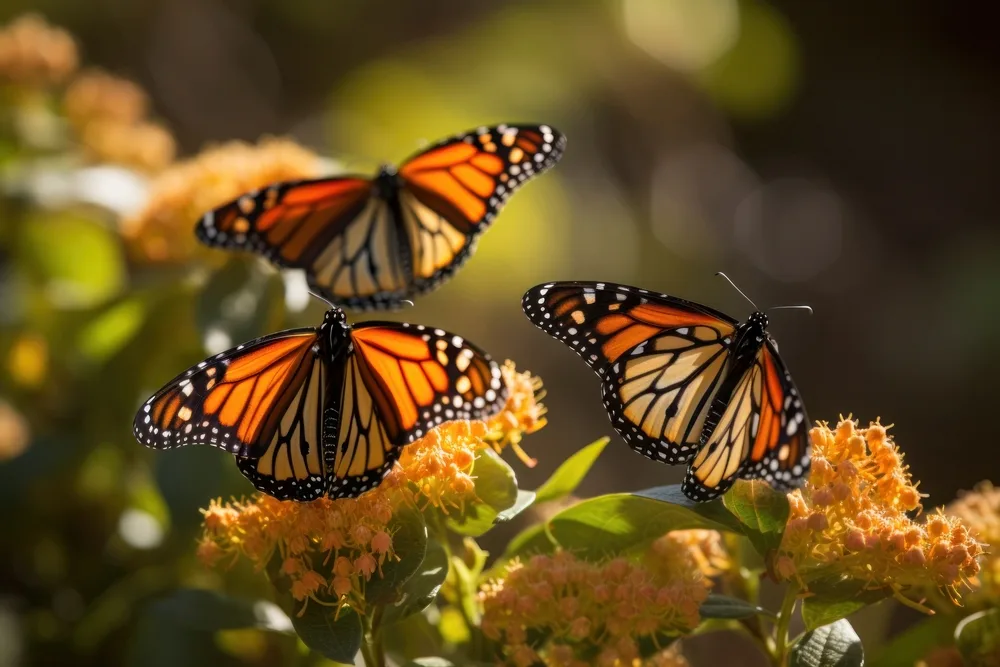
Monarch butterflies are crucial for a healthy ecosystem, but wasps pose a significant threat to their survival.
While wasps play an important role in nature, their predation on monarch caterpillars drastically reduces their numbers.
To protect monarchs in your garden, you need to find ways to limit wasp activity around them without completely eliminating these important pollinators.
Understanding Wasp Behavior
Adult wasps feed on nectar, but their larvae need protein to grow. This protein comes from soft-bodied insects like aphids, spiders, and caterpillars.
Adult wasps collect these insects and bring them back to the nest for the larvae. In return, the larvae produce a substance that adult wasps consume, encouraging them to gather more insects.
To protect monarch caterpillars, it’s essential to disrupt this cycle.
Protecting Caterpillars Without Harming Wasps
To ensure more monarch caterpillars survive, you can protect their primary food source, milkweed. The U.S. Forest Service notes there are around 26 species of milkweed suitable for your garden.
Covering milkweed plants can effectively shield caterpillars from wasps. Use tomato cages around the plants and cover them with insect or mosquito netting.
Alternatively, place mesh bags over the plants, similar to protecting a vegetable garden. Ensure you cover the plants only after monarchs have laid their eggs.
This method is also effective for potted milkweed plants. Be prepared for the milkweed to be heavily eaten, as caterpillars have large appetites.
Using Nectar-Rich Flowers as Decoys
Since wasps are essential pollinators, it’s important not to eradicate them completely. Gardeners are increasingly working with nature to manage pests.
You can keep wasps away from monarch caterpillars by planting nectar-rich flowers that attract them, such as Queen Anne’s Lace, sunflowers, and goldenrod.
Alternatively, plant species around your milkweed that deter wasps. Plants with strong scents, like lemongrass, lavender, sage, and thyme, are effective.
Rosemary is another fragrant herb that deters wasps and can be planted around milkweed to protect caterpillars.
By following these steps, you can create a garden that supports both monarch butterflies and wasps, contributing to a healthier and more balanced ecosystem.
